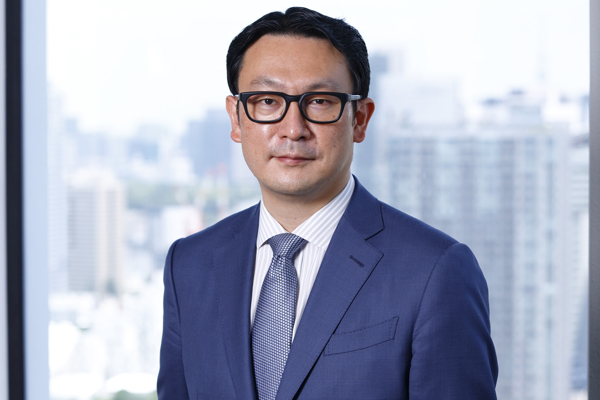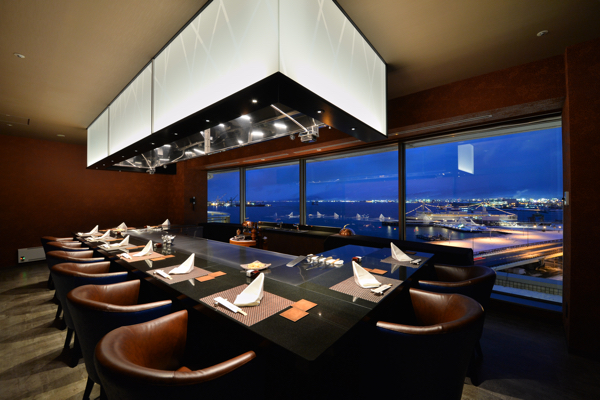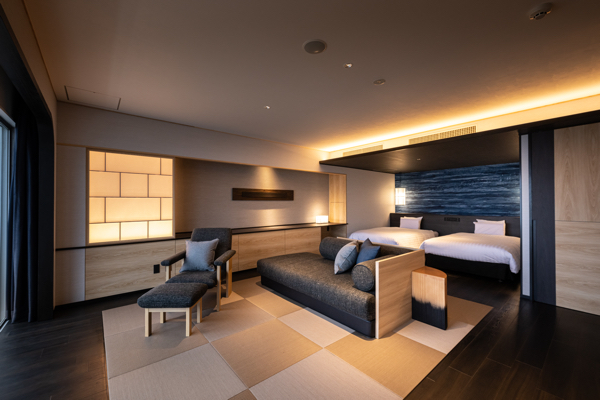Despite reports in August that SoftBank Group Corp. might sell its Fortress Investment Group, which currently owns and/or operates about 225 hotels in global markets, the hospitality investor remains very active in the acquisition marketplace, particularly in Japan where its Fortress Japan Opportunity Fund IV with ¥150 billion (US$1.1 billion) in committed capital has already made three deals (32 hotels) this year with another six under exclusivity.
Shunsuke Yamamoto, managing director of Fortress Investment Group in Asia, says the company will be selectively selling assets in some of the older vintage funds while continuing to look for new opportunities. “Fortress has been the most active hospitality investor in Japan over the past decade (currently owns/operators some 161 hotels and 23,704 rooms there), and we are seeing the current market as a great buying opportunity,” Yamamoto told HOTELS in August. “In fact, I am heading to the airport now to embark on a three-city site tour.”

Among the bigger deals of recent vintage was Fortress’ acquisition of a 30-property Japan Post portfolio, while in Europe in December 2021 it secured a majority stake in Prem Group, Dublin, Ireland, which owns and manages some 38 hotels and serviced apartments across Ireland, Britain, Belgium and the Netherlands. The group also has a portfolio in North America with five hotels and about 2,300 rooms.
Fortress-controlled entities own, lease or manage approximately 59 hotels or serviced apartment assets in Europe and have stated that it plans to invest further in the serviced apartments business along with other sectors in Britain, Ireland and continental Europe. In late June, Prem acquired the Fountain Court hotel in Edinburgh, Scotland, with plans to convert it to a Premier Suites.
Trading in Europe has been above expectations throughout this year, according to Robert Miles with Fortress Investment in London. “We are continuing to focus on add-on acquisitions with an active pipeline and completed our first add-on in July,” he said.
At the start of the year, Fortress Investment Group managed approximately US$54 billion in assets on behalf of about 1,800 institutional clients and private investors worldwide. It has offices around the globe and its Credit Private Equity business, which includes real estate, has its primary office in the San Francisco area, with investment and asset management teams located in New York, Dallas, Los Angeles, Tokyo, London, etc.
But with a big focus on Japan, HOTELS recently spoke to Yamamoto, who leads Fortress’s hospitality investment team there, about the group’s hotel activity in the recovering market.
HOTELS: Can you address the rumors about SoftBrand looking to sell Fortress Investment?
Shunsuke Yamamoto: SoftBank Group Corp. owns Fortress Investment Group LLC. Fortress has had different ownership structures in its 20 years of history: private, public, and private under SoftBank. We have had strong investment performance and management continuity under every structure. Furthermore, SoftBank is a financial investor in the business of buying and selling companies and has not been directly involved in the investment process of our funds. We will continue to serve our fund investors through our rigorous data-driven investment approach and intensive hands-on asset management.
H: What is your hotel investment background and how long have you been with Fortress?
SY: I started my career in real estate investment banking at UBS and JP Morgan. I’ve been a hotel investor/asset manager since 2005 when I joined a hotel investment platform formed by Soros Real Estate (now Alpine Grove Partners) and Westmont Hospitality Group.
I’ve always been attracted by hospitality’s unique positioning in the real estate PE world where there is large variability in the achievable returns for the same hard asset depending on the asset manager’s vision and capabilities. I’m not a hotel school graduate but an LLB, MBA by educational background. The ability to enhance a hotel’s performance by implementing better pricing strategies (revenue management), better marketing (loyalty programs, digital marketing, etc.) is something not often seen in other real estate types.
I joined Fortress in February 2011 and have led the growth of the Fortress hotel asset management team as well as MHM. MHM was a budgeted extended-stay operator when Fortress gained control in 2012. Today, it is Japan’s fourth largest hotel management company by number of hotel rooms and is the only manager in the top five that handles a full range of hotel types: full-service, resort, ryokan, limited-service, extended-stay, serviced apartments, and capsule.
H: How is the hotel portfolio in Japan performing and what is the forecast?
SY: The performance varies greatly by type of hotel and location.
Same as with other regions, drive-to destinations have performed strongly in 2022 as have some fly-to destinations like Okinawa and Hokkaido.
Limited-service hotels in markets where a high percentage of room nights were sold to inbound guests, such as Kyoto with 67.8% in 2019, Osaka with 37.9%, Sapporo with 38.2%, and Tokyo with 44.8%, are taking longer to recover since the Japanese government still has a cap on the number of inbound visitors allowed into the country at 20,000 people per day and since these are the markets which had seen the newest supply over the past five years or so. However, the government is moving towards aligning COVID restrictions with the rest of the G7 and other East Asian nations aside from China.
Limited-service hotels and full-service hotels in more domestically oriented markets have seen occupancies recover to around 80% of 2019 levels.
Japan is a very desired destination and ranked #1 in The World Economic Forum, Travel & Tourism Development Index 2021 for destinations people want to travel to. We believe that the resurgence should be very strong.
H: What are the expectations for hotel performance over the next 18 months in Japan and elsewhere where Fortress owns hotels?
SY: Japan has lagged other G7 nations in terms of forming public perceptions that COVID-19 is now endemic. The government has been cautious about lifting restrictions but has signaled that it will start doing so shortly.
With the expected reopening of Japan in autumn 2022, we believe that international business travel and higher-end FIT will lead the recovery in inbound. LCC-dependent lower-rate inbound FIT and mass tour groups will take longer to recover, in line with the recovery pace for air capacity.
A positive factor is that many airports such as Haneda Tokyo International Airport, Ishigaki Airport, Kumamoto Airport, and others, had significantly increased capacity immediately prior to the pandemic.

The weak yen will be a driver for increased interest in Japan as a travel destination.
H: What can you tell us about your active pipeline, and what is your forecast for M&A for the remainder of the year?
SY: We have been very active buyers this year having closed on three transactions (32 hotels) and with six deals under exclusivity.
The three deals closed in 2022 include Kanpo no Yado portfolio with 30 assets acquired from Japan Post; the View Hotel Narita and View Hotel Irago acquired from a subsidiary of Hulic; and the Riverside Kumamoto (expected to close at the end of August), where the seller is an owner-operator.
We continue to like resorts but are actively looking for attractively priced opportunities in all hotel types and markets.
The distress in the market is still more operational rather than financial. Many of our recent acquisitions have been assets that were under-managed or badly in need of renovation CapEx. Lenders have largely been extending the loan maturities for assets owned by investment firms and developers. So, Japan has seen fewer lender-led distressed sales compared to other markets.
Fortress has the advantage of being able to turn around assets through aggressive renovation and operational turn-around plans made possible by the expertise of Mystays Hotel Management (MHM), our in-house hotel management platform.
H: What are your hotel investment criteria and how has it evolved in the last 24 months?
SY: We have always looked to acquire assets at a low basis, usually below replacement cost. We have done a handful of new developments over the past 11 years, but in those cases, we had a low basis in the land.
We have always looked for opportunities where we could enhance the asset’s performance, through a combination of renovation and operational improvement. Our control of MHM gives us the resources to execute large, operationally complex deals. For example, in our acquisitions of 30 hotels from Japan Post in April 2022, we acquired a portfolio of assets that has never made a combined profit in its decades of operation since the start of the business. We saw the opportunity to expand the sales channels beyond the 400,000 Japan Post life insurance members and a limited OTA presence to a much larger market. We will also refresh the properties through targeted renovations such as the conversion of underutilized space into rooms, modernization of the F&B offering, and revamping of the guest rooms to better adapt to consumer tastes. We have a team of 25 dedicated renovation managers at MHM who will plan and oversee many simultaneous renovations.
Our investment criteria have not changed over the past couple of years, but we are finding more deals that meet our criteria.
H: Does Fortress bring in investment partners for hotel deals and can you explain the criteria?

SY: Occasionally. We do so on a case-by-case basis depending on the circumstances of each deal.
H: How competitive are hotel deal opportunities today versus two or three years ago, and how is that impacting Fortress’ acquisition strategy?
SY: We have seen newer players enter the market. There have been large portfolio transactions where the seller retained management of the hotels, as well as some trades of well-located, newer limited-service hotels in major markets. For the former categories, buyers have been large PE firms. For the latter, Asian owner-operators have been aggressive operators.
We are also seeing increased interest in the resort space. Key gateway cities such as Tokyo and Kyoto remain attractive mid-to-long-term investment opportunities, and Okinawa, especially the smaller islands of Ishigaki and Miyako, have a lot of potential to become major destinations for East Asians.
Fortress focuses on both buying at good pricing and identifying areas for value enhancement, so we have been able to acquire assets at all points in the real estate cycle.
H: Are you selling any hotel assets and does Fortress remain a net buyer of hotel assets?
SY: Fortress is currently investing in Fortress Japan Opportunity Fund IV in Japan. We will be selectively selling assets in some of the older vintage funds while continuing to look for new opportunities. It’s ¥150 billion in committed capital.
H: What markets and segments have your attention for acquisition?
SY: Markets with multiple demand generators are particularly attractive for us. For example, Kyoto is home to many large corporations such as Nintendo, Kyocera, Omron and Murata, which drive business demand. It is also Japan’s historical capital with rich cultural attractions to drive a very wide range of domestic and international leisure demand of all budgets, both group and FIT.
Resorts and full-service are comparatively more attractive for us at the moment since new supply is more limited than for limited-service.
H: What markets outside Japan interest Fortress for hotel investment?
SY: Fortress has been an active buyer in North America and Europe. These investments are through the Fortress Real Estate Opportunity Funds which share the same CIO as the Fortress Japan Opportunity Funds.

